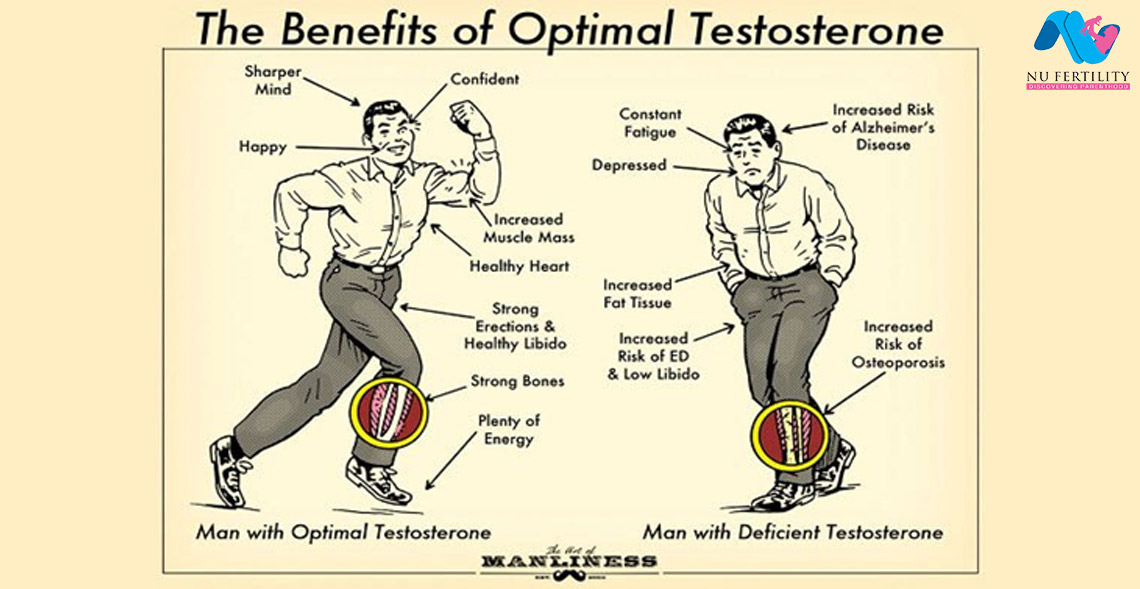
Why Is Low Testosterone Significant?
Testosterone is the male sex hormone that is produced in the testicles. Testosterone is responsible for making sperm and developing masculine traits (such as a deeper voice, body and facial hair, and greater muscle mass). Symptoms of low testosterone include erectile dysfunction, low sex drive, fatigue, reduced muscle mass, irritability, increased fat mass, and depression.
The following are some causes of testosterone deficiency:
- Chemotherapy
- Radiation
- Damage to testicles
- Infection
- Autoimmune disease
- Aging
- Pituitary gland disease
Low Testosterone Risk Factors
Below are factors that accompany low testosterone. Each factor is paired with what percentage of men with these factors also have low testosterone.
- High blood pressure (about 40% of men also have low testosterone)
- High cholesterol (about 40%)
- Long-term opioid use (almost 75%)
- HIV (about 30%)
- Obesity (about 50%)
- Diabetes (about 50%)
- AIDS (about 50%)
Is Low Testosterone Very Common?
Overall, about every 2 in 100 men have low testosterone. Although as many as 50% of older men (roughly over 80 years old) exhibit symptoms, about 1% of younger men show these symptoms. Low testosterone is more common in overweight or diabetic men.
Non-Specific Symptoms of Low Testosterone
Some signs that may or may not be linked to low testosterone include: poor memory, poor focus, low energy levels, reduced strength and endurance, decline in work performance, and possible others. If some of these signs are normal for you, there is likely no need to panic. However, if you begin to have a combination of two or more of these symptoms and it is abnormal for you, you may have a testosterone deficiency. If this happens to you, please consult your doctor and see what options you have to mitigate these symptoms.
Schedule an appointment with one of our healthcare providers at ASUI today to discuss how we can help you raise your testosterone levels!
